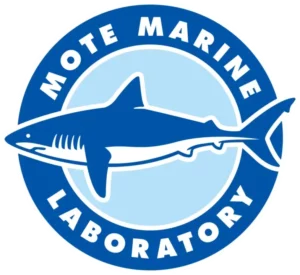Member Type Non Governmental Organization
Mote Marine Laboratory & Aquarium

Mote Marine Laboratory is an independent non-profit marine research and science education institution that, since its establishment in 1955, has pushed the frontiers of science for a noble cause – Conservation and sustainable use of our Oceans.
Mote has over 40 Ph.D. level scientists as part of over 300 staff, conducting research at our eight campuses in Florida and with partner institutions around the world. Coral reefs are a significant focus for many of our research and science education programs in the U.S., wider Caribbean, Pacific Islands, Southeast Asia, Taiwan and Middle East.
- Twitter/X: @motemarinelab
- Instagram: @motemarinelab
- FaceBook (Meta)
- TikTok: @motemarinelab
Related websites:
Background Information
Mote scientists have a long history of direct and abiding interest in the well-being of coral reefs and associated ecosystems, as well as demonstrated leadership in protecting coral reef ecosystems through significant national, regional, or global coral reef programs or interests.
Mote’s current President & CEO served as one of the original co-Chairs for the U.S. Coral Reef Initiative in 1994, and Mote researchers are leaders in science-based restoration efforts having pioneered novel techniques of coral micro-fragmentation and genetic resiliency that have changed the paradigm for coral restoration around the world. Mote Marine Laboratory’s Coral Reef Research and Restoration initiatives support numerous scientists working across multiple disciplines to reverse decades of ecosystem decline, bringing new life and new hope to Coral Reefs around the world. Over the last decade, specifically, Mote has been:
- Identifying disease-resistant and climate-resilient corals and using this knowledge to ensure the success of long-term reef restoration efforts
- Creating new genetic diversity within coral species through sexual propagation of branching corals and micro-fragmenting of massive corals
- Restoring Florida’s Coral Reef through outplanting disease-resistant and climate-resilient corals, bringing degraded reefs back to life with living coral coverage
- Preserving genetic diversity for future research, propagation, and restoration by establishing a storm-safe, inland coral gene bank
- Expanding capacity to increase coral spawning from once-yearly to year-round through new spawning methods and technology
In 2017, Mote secured US$7,000,000 in philanthropic donations to construct and launch a new 19,000 ft2, state-of-the-art, Elizabeth Moore International Center for Coral Reef Research & Restoration (IC2R3), that includes the Alfred Goldstein Institute for Climate Change Studies, on our Summerland Key campus in the Florida Keys. In 2020, Mote became the first scientific organization to carry out every step of the staghorn coral sexual propagation process— from spawning and outgrowing in the laboratory, to outplanting and maintaining on the reef until they reach sexual maturity, become gravid, and spawn again to create an entire second generation of disease-resistant and climate-resilient corals. In another breakthrough, Mote-grown mountainous star corals that were outplanted to the reef grew to sexual maturity and spawned in record-time, just five years— the first time this has happened anywhere in the world. This newfound accelerated growth cycle for outplanted corals makes it possible to literally shave decades off the reef restoration process.
Mote has also established a large-scale, land-based National/International Coral Gene Bank that will serve as a “Noah’s Ark” to preserve species and genetic diversity for future research, propagation, and restoration. The facility is located in an environmentally hardened building with redundant power and re-circulating seawater systems on the 200-acre Mote Aquaculture Research Park campus ~ 20 miles inland from the coast. The goals of the Mote coral gene bank include: providing a safe-haven for corals that are on the brink of local and regional extinction; maintaining genetically diverse broodstock for future generations of corals; ensuring genetic diversity within restoration populations; creating thousands of new corals through assisted sexual reproduction; and studying and preserving resilient corals for biomarker development and resilient reef restoration activities. Mote’s coral genotype holdings currently consist of over 1,600 genotypes from 17 species, with ~3,600 additional genotypes from 3 species that will be added over next two years.
The mission and impact of Mote Marine Laboratory coral reef research, science education and community engagement aligns well with that of the International Coral Reef Initiative. Mote science has and continues to identify specific coral genotypes of endemic coral species that demonstrate a science-based resiliency to both known and future stressors of disease, ocean temperature increases and ocean acidification, and is training scientists and volunteers from around the world to transfer this technology at a global scale through local community action.
Last Updated: 13 January 2025